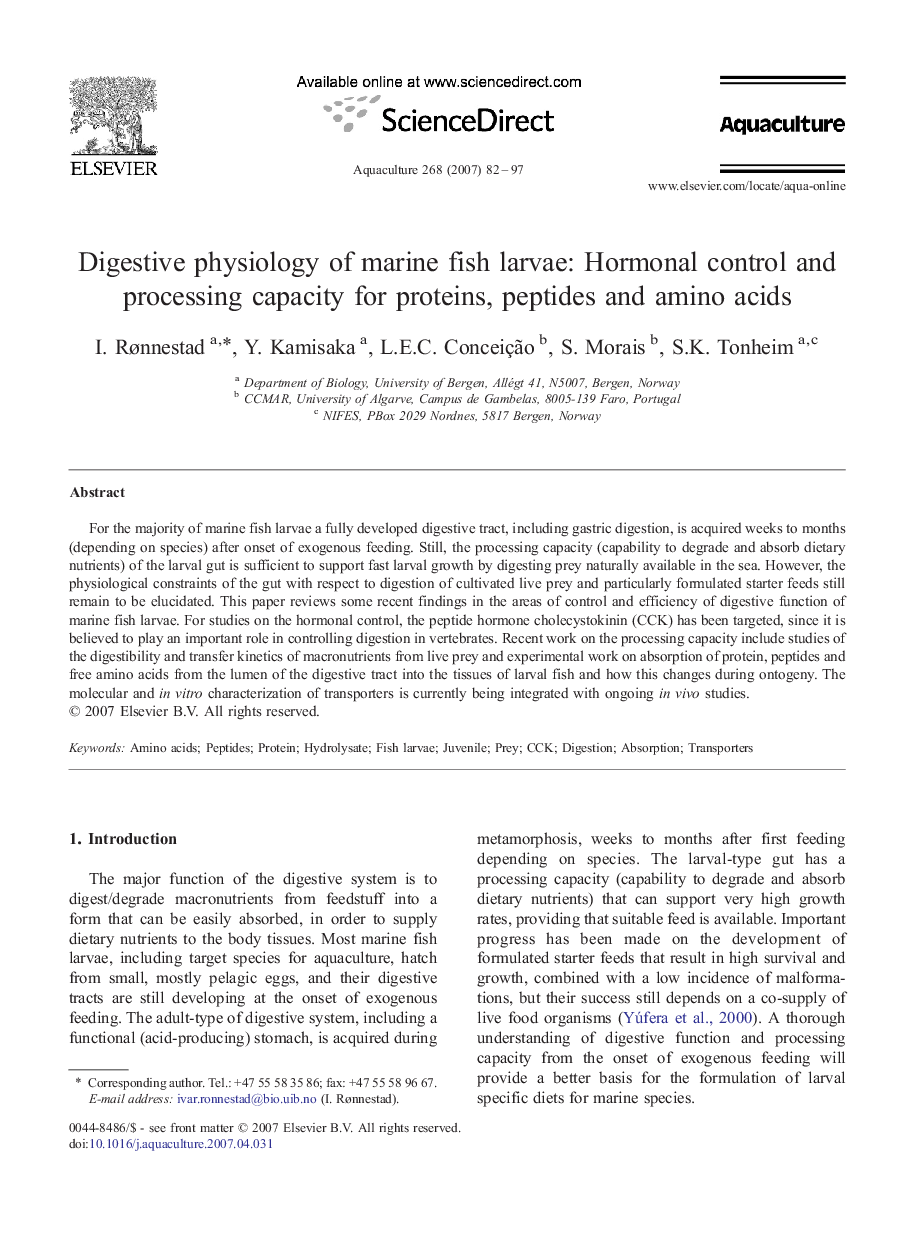| کد مقاله | کد نشریه | سال انتشار | مقاله انگلیسی | نسخه تمام متن |
|---|---|---|---|---|
| 2425230 | 1552974 | 2007 | 16 صفحه PDF | دانلود رایگان |

For the majority of marine fish larvae a fully developed digestive tract, including gastric digestion, is acquired weeks to months (depending on species) after onset of exogenous feeding. Still, the processing capacity (capability to degrade and absorb dietary nutrients) of the larval gut is sufficient to support fast larval growth by digesting prey naturally available in the sea. However, the physiological constraints of the gut with respect to digestion of cultivated live prey and particularly formulated starter feeds still remain to be elucidated. This paper reviews some recent findings in the areas of control and efficiency of digestive function of marine fish larvae. For studies on the hormonal control, the peptide hormone cholecystokinin (CCK) has been targeted, since it is believed to play an important role in controlling digestion in vertebrates. Recent work on the processing capacity include studies of the digestibility and transfer kinetics of macronutrients from live prey and experimental work on absorption of protein, peptides and free amino acids from the lumen of the digestive tract into the tissues of larval fish and how this changes during ontogeny. The molecular and in vitro characterization of transporters is currently being integrated with ongoing in vivo studies.
Journal: Aquaculture - Volume 268, Issues 1–4, 22 August 2007, Pages 82–97